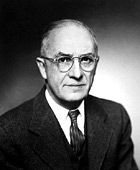|
William Carlos Williams was born on September 17, 1883 in Rutherford, New Jersey. He knew from an early age that he wanted to write, making the decision in high school to pursue a career as doctor and writer. Williams studied medicine at the University of Pennsylvania, where he became friends with Ezra Pound. He was heavily influenced by Pound, who helped him get a collection of poems, The Tempers, published in 1913. He became alumnus from the University of Pennsylvania in 1906 when he earned his M.D. By 1910, Williams had began his pediatric practice in his hometown. He continued to publish, writing plays, poems, novels, and essays. He was a major poet of the Imagist movement but later abandoned the movement due to the values set forth by the other poets involved in it. Although Williams wrote a signifigant amount of prose, his poetry is his marking point. He experimented with many different styles, including terza rima and free verse. Stylistically, Williams preferred the line over the sentence. Williams was also influenced by many "-isms," two which effected him greatly are dadaism and cubism. He was a major writer in the modernist movement, helping to create a clear American voice. Williams had a heart attack in 1948 which was followed by a series of strokes, forcing him to retire from his medical practice. He continued to write until his death on March 4th, 1963. Williams was a highly acclaimed writer, two of his many honors include the National Book Award in 1950 and the Pulitzer Prize in 1963. |






